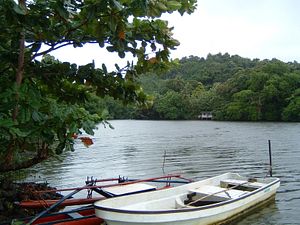The 47th Pacific Islands Forum leaders’ meeting began this week on the island of Pohnpei in the Federated States of Micronesia. The meeting will bring together the leaders of 16 Pacific Island states to provide a platform discuss the prominent economic, development, and security issues of the region, and seek solutions to the region’s mutual problems.
The forum describes its mission as: “to work in support of forum member governments, to enhance the economic and social well-being of the people of the South Pacific by fostering cooperation between governments and between international agencies, and by representing the interests of forum members in ways agreed by the forum.” It has met annually since 1971, when the forum was founded as the South Pacific Forum.
Sixteen states in the South Pacific are members of the Pacific Islands Forum: Australia, Cook Islands, Federated States of Micronesia, Fiji, Kiribati, Nauru, New Zealand, Niue, Palau, Papua New Guinea, Republic of Marshall Islands, Samoa, Solomon Islands, Tonga, Tuvalu, and Vanuatu.
Reflecting the predominant geographic nature of the forum’s members, the theme for this year’s summit is: “Small and Far: Challenges for Growth.” While each of the members have small land masses and populations (Australia aside), their combined sovereignty covers an area of 8,538,293 sq km (3,296,653 sq mi), making their agreement over maritime concerns important not only for members of the forum, but also for states outside the forum with interests in the South Pacific.
This geographic reality is usually reflected in the priority of regional fisheries and shipping lanes on the forum’s agenda. However, in recent years the impact of climate change has begun to dominate discussions within the forum.
The smaller states within the South Pacific have become a leading voice on the global stage on the issue of climate change and its potential effects on human security, as well as the environment. Pacific Island nations take climate change extremely seriously, with some forecasts predicting a potential loss of territory due to rising sea levels. For Tuvalu, a country whose highest point is only 4 meters above sea level, rising sea levels are very real threat to its existence.
This puts them at great odds with the region’s main power. Low-lying Pacific Islands deem Australia’s continued reliance on coal, as both a source of energy and a major export, a menace. Australia remains the third largest producer of coal in the world (behind China and the United States), and the world’s largest exporter of the fossil fuel, with no intention of shifting these positions.
The most prominent external issue for the forum will remain its interest in the Indonesian province of West Papua. In June this year the Solomon Islands and Vanuatu informed the United Nations Human Rights Council in Geneva that they were very concerned about the deteriorating human rights situation in West Papua. While representatives from West Papua have no involvement in the forum, many of the Melanesian states like the Solomon Islands, Vanuatu, and Papua New Guinea maintain a strong ethnic solidarity with the Indonesian province, and pay special attention to developments there.
At last year’s Forum in Port Moresby a decision was reached to organize a fact finding mission to West Papua. However, Jakarta indicated it would not welcome any delegation, and had problems with the use of the term “fact-finding.” However, West Papuan leaders in exile remain hopeful that a push for similar pressure on Indonesia will develop from this year’s forum. However, with Australia keen to maintain friendly relations with Indonesia, it is doubtful Canberra will add too much of its weight to these concerns.
The other major concern for the forum will be the continued negotiations of the Pacific Agreement on Closer Economic Relations (known as PACER Plus). There is a developing consensus among the smaller Pacific Islands states that this agreement would not promote further economic development. Given that these island states already have tariff-free and duty-free access to the Australian and New Zealand markets the PACER Plus agreement would do little to enhance this reality.
Fiji’s Prime Minister, Frank Bainimarama, has stated there “aren’t enough pluses” for Fiji to warrant signing the agreement, and the PNG Trade Minister has flatly stated he is “not interested” in it. Of greater importance to the Pacific Island states is freer labor mobility for unskilled and semi-skilled workers within the Australian and New Zealand markets. This is seen as having a far more direct positive economic impact for these countries.
The forum will conclude on Sunday September 11 with its traditional communiqué of conclusions reached to be published shortly after.

































